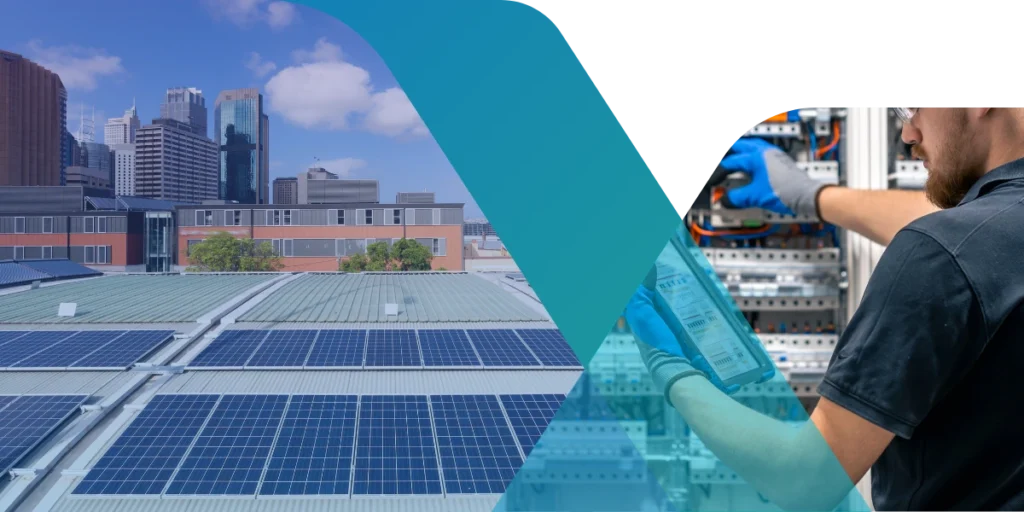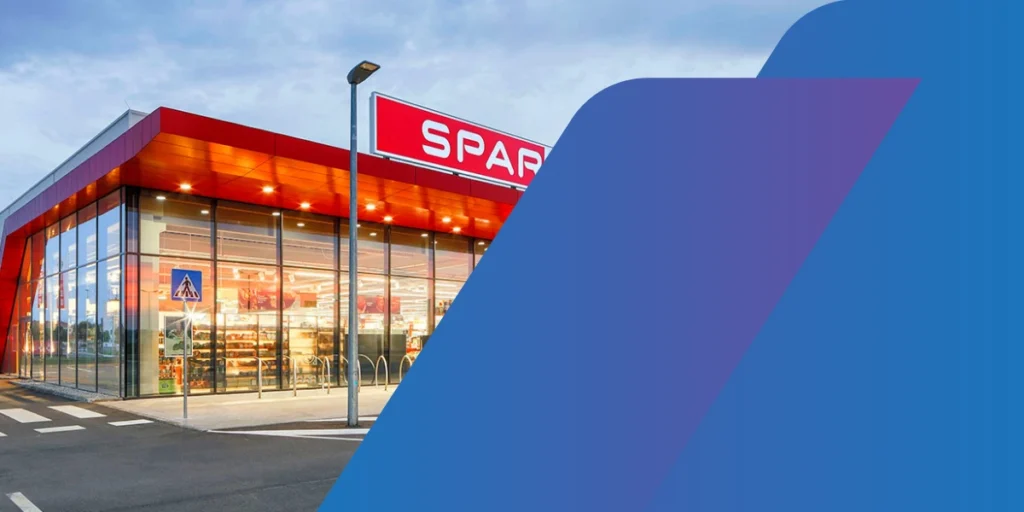Table of Contents
1. Energy Management 101
2. EnCO – The Energy Conscious Organisation
3. ISO 50001 Ground Zero is Compliance
4. Energy Tariff Management
5. Energy Data Collection
6. Energy Data Analysis
7. Energy Data Utilisation
8. The Role of a Certified Energy Manager
9. Energy Data and Renewable Energy
10. Real-Time Energy Data Monitoring
11. Case Studies in Energy Data Management
12. Energy Data Management is a Business Imperative

Energy Management 101
Energy is a limited and valuable resource and it is essential that organisations have a thorough understanding of how they use it and how they can use it more effectively. Many countries in the world are facing a range of energy challenges, from blackouts or load shedding, which impact business continuity, to rising electricity costs and regulatory compliance around emissions. To achieve energy efficiency businesses require energy management solutions to support them with the collection, analysis, and utilisation of energy data to optimise energy usage and empower them (pun intended) to make informed decisions that can reduce costs, improve efficiencies as well as support regulatory compliance requirements. Before we dive into effective energy management best practices, we need to ask the most pressing question first – what is the fastest and most cost-effective way to lower energy consumption, cut energy costs, and reduce CO2 emissions?
EnCO – The Energy Conscious Organisation
You may be surprised to find that the answer is people. The Energy Conscious Organisation (EnCO) global initiative brings over 100 years of combined experience in energy management, and they are committed to sharing their expertise with the world. Their aim is to engage, empower, and equip organisations and energy professionals to achieve significant savings through people. EnCO emphasises that addressing energy efficiency starts with gaining insights into the daily operations and routines of your staff such as:
- Business Hours and Patterns – Assess the starting and ending times of your business operations. Understand how energy usage peaks during these periods and identify opportunities to optimise.
- Team Behaviour – Observe how your team interacts with energy-consuming equipment. This includes everything from HVAC systems to vending machines, coffee makers and energy-intensive appliances and machinery.
- Appoint a Custodian and Decision Maker – Ensure you have appointed people in your team who can champion your initiatives and the power to make decisions.
- Budget Allocation – If you energy spend each month is more than your adverting budget it would be wise to have as many people dealing with your energy needs as your advertising team or at least have the same level of experts to assist you to manage this aspect of your business.
Creating a culture of energy awareness in your business is the starting point. This holistic approach ensures that every aspect of energy management is optimised, from the daily routines of your team to the operation of your most energy-intensive systems.
ISO50001 Ground Zero is Compliance
Ensuring that your business aligns with the best global frameworks and standards helps form your organisations energy management foundation. ISO 50001 is an international standard developed by the International Organisation for Standardisation that provides a framework for businesses to establish, implement, maintain, and improve an energy management system. This standard helps organisations continually reduce their energy use, energy costs, and greenhouse gas emissions. The importance of ISO 50001 for businesses lies in its potential to significantly improve energy efficiency.
Implementing this standard, will support businesses to meet regulatory requirements, reduce their energy consumption while demonstrating their commitment to environmental sustainability. Furthermore, the systematic approach of ISO 50001 helps businesses identify and manage the diversity of risks associated with their energy supply, an issue keenly felt by those affected by inconsistent power supply.
Energy Tariff Management
Understanding and selecting the most suitable energy tariff plans based on your company’s usage, patterns and operational needs is essential. Many businesses however have a poor understanding of their energy tariff system which often leads to their business being allocated an unsuitable plan, resulting in higher costs. Additionally, changes in energy market prices and regulations can impact the effectiveness of the chosen or adopted tariff plan.
The importance of energy tariff management for businesses lies in its potential to significantly reduce energy costs, thereby improving the company’s bottom line. It also allows businesses to predict their energy expenses more accurately, facilitating better financial planning. Furthermore, it promotes sustainable energy use, aligning with global efforts towards environmental conservation.
We recommend that businesses obtain a good understanding of this complex system, in South Africa, for example, there are over 200 different tariffs.
These are the questions you should be asking.
Is your facility low voltage, high voltage, medium voltage or time of use tariff?
Are you aware that the tariff you are on is usually dictated by the electrical engineer on the original usage calculation, not the actual?
If your businesses building usage has changed since the original development so should your tariff.
You may be paying for supply that you don’t require and from our experience sometimes this could be more than 50% of your bill. The location of your facilities also influences your tariff – do not assume that your tariff will be the same for two identical facilities in different areas.
Energy Data Collection
In our view regardless of what you are spending on energy every month, if you are not asking “Why you are spending this amount?” then your journey to energy efficiency has yet to begin. Before businesses can get the answer to the million dollar question however you will need to ensure that you are collecting accurate and reliable data.
“You can’t manage what you can’t measure.”
Without effective collection workflows organisations will likely be gathering inaccurate data. This will lead to businesses basing decisions on unreliable data with dire consequences, or at very least they will miss valuable energy cost reduction and efficiency opportunities.
The primary goal of obtaining energy data is to make meaningful improvements to your business by implementing energy efficiency projects. This data allows you to track these projects effectively, build a solid business case, identify where savings are occurring, and understand which initiatives are truly effective.
Challenges and Solutions in Energy Data Collection
The data collection process often presents a myriad of challenges. Fortunately, these can be effectively addressed through careful planning, the use of advanced tools, and strict adherence to ethical standards. Here are some challenges and potential solutions:
- Data Quality: Inaccurate, incomplete, or outdated data can lead to misleading analysis and incorrect conclusions. Implementing data validation procedures, such as guard mechanisms in data compilation, pre-importing data review, bi-annual data cleaning to prevent redundancy, and establishing malformation identification channels, will ensure its accuracy and completeness.
- High Costs: Data collection can be expensive, particularly for large-scale studies or when collecting data from hard-to-reach populations. Some models, where costs are carried by energy management service providers and covered by projected savings, can help. If this isn’t an option, plan the data collection process carefully to optimize resources and consider using cost-effective methods like online surveys.
- Time Constraints: Data collection can be time-consuming, delaying the analysis and use of the data. To speed up the process, utilize automated data collection tools, streamline the data collection process, or hire additional staff or outsource data collection.
Methods and Technologies to Collect Energy Data
Not all meters are born equal…
- Smart Meters – Smart meters provide real-time energy consumption data and transmit this information to both energy providers and consumers. This facilitates accurate monitoring and management of energy usage. They can be expensive to install and could raise privacy concerns due to the detailed tracking of energy usage.
- Building and/or Energy Management Systems – These are sophisticated, computer-based systems that monitor, control, and optimise the energy and other utility use of various installations. They collect detailed data that can be analysed to find efficiency and cost saving opportunities. The initial setup and maintenance costs can be high, and they require technical expertise to manage.
- Internet of Things (IoT) Devices – Energy monitoring and management devices, connect to the internet and interact with other devices to optimise their energy use by providing detailed consumption data. Like any technical system these devices require maintenance and management to ensure various aspects including sensor accuracy and security measures for data protection. This gives us immediate access instead of having to engage with several people to obtain the data we need.
- Manual Meter Reading – This traditional approach involves personnel physically visiting locations to read and record meter data. They do not require advanced technology, making it suitable for regions with limited technological infrastructure, however they are labour-intensive, prone to human error, and less efficient than automated methods. It is so important to understand how you are verifying the meter that you are being billed on is right. Our solution to this is to have a double entry – a reading from your manual meter and one from a smart meter. From our experience almost 60% of the bills from manual meters we see are incorrect.
- Automated Meter Reading (AMR) – AMR systems automate the collection of consumption data and its transfer to a central database, improving efficiency over manual readings. This reduces labour costs and improves data collection frequency and accuracy. Installation can however be costly, and systems may still face issues with data transmission errors.
- Energy Audits – Energy audits are thorough assessments that collect and analyse data on energy consumption within a facility to identify inefficiencies and recommend corrective actions. These assessments can be time-consuming and require upfront investment for the assessment.
Energy Data Analysis
Now that we have covered the importance of collecting accurate energy data the next step on the journey is to examine and interpret the data. This is crucial for identifying patterns, anomalies in energy consumption, understanding trends, and making informed decisions to optimise energy usage, reduce costs, and support your businesses sustainability initiatives.
Energy Audits and Other Techniques for Analysing Energy Data
- Energy Auditing – This involves a systematic approach to decision-making in the area of energy management. It attempts to balance the total energy inputs with its use and serves to identify all the energy streams in a facility.
- Data Mining – This technique involves the process of discovering patterns in large data sets involving methods at the intersection of machine learning, statistics, and database systems. It can be used to analyse energy data to uncover hidden patterns and correlations. Partner with the right people, its about the journey, not the destination. If you brought in an financial auditor they will want to see details historical data that is verified and as per the legislation. Unless you have your own electrician doing the work, you are not sure if the work was completed correctly.
- Statistical Analysis – This process involves the analysis, interpretation, presentation, and modelling of data. It can be used to analyse energy data to make predictions about future energy consumption. This process comes with a disclaimer and that is that these analyses can be engineered to deliver the outcome that you asked for but not necessarily deliver on your goals. If for example you are wanting to see a 10% saving, you need to ask is it 10% of heating, cooling, diesel, gas, radiation, total bill etc – this precision is key to providing an accurate and pragmatic analysis of your data.
- Machine Learning – This involves the use of artificial intelligence (AI) that provides systems the ability to automatically learn and improve from experience without being explicitly programmed. Machine learning can be used to analyse energy data and make accurate predictions.
- Regression Analysis – This is a set of statistical processes for estimating the relationships among variables. It can be used to analyse energy data to understand how the typical value of the dependent variable changes when any one of the independent variables is varied
- Time Series Analysis – This technique involves the analysis of data points ordered in time. Time series analysis can be used to forecast future energy consumption based on past data.
- Benchmarking – This involves the process of comparing one’s business processes and performance metrics to industry bests or best practices from other industries. It can be used to analyse energy data to identify areas where energy efficiency can be improved.
Energy Data Utilisation
If data is the key to unlocking cost savings and operational efficiencies, utilising that data through an energy management system is the vehicle to get your business to these destinations. Once you understand your businesses energy consumption, production, and distribution patterns, your data can effectively be leveraged to guide strategic planning, policy-making, and operational decisions.
An energy data management system is a sophisticated platform designed to collect, analyse, and manage data related to energy consumption. It aids in monitoring, controlling, and conserving energy in a building or facility, thereby promoting efficiency and sustainability. This system is crucial for organisations aiming to reduce their energy costs and environmental footprint.
Components and Functionalities of an Effective System
Data Collection: An effective energy data management system should have the ability to collect data from various sources such as meters, sensors, and other energy consumption devices.
Data Integration: The system should be capable of integrating data from different sources and formats. This functionality allows for a comprehensive view of energy consumption across various sectors or departments.
Data Analysis: Businesses should have robust analytical tools to process and experts to interpret the collected data. This enables the identification of trends, patterns, and anomalies in energy usage.
Real-time Monitoring: The system should provide real-time monitoring of energy consumption. This feature allows for immediate detection of any issues or inefficiencies, enabling quick corrective action.
Reporting and Visualisation: An effective energy data management system should have reporting and visualisation tools. These tools help in presenting data in an understandable and actionable manner, aiding in decision-making processes.
Energy Efficiency Measures: The system should be able to suggest energy efficiency measures based on the analysed data. This feature helps in reducing energy consumption and costs.
Security and Compliance: The system should ensure the security of the data and comply with relevant regulations and standards. This feature is crucial to protect sensitive information and avoid legal issues.
Scalability: The energy data management system should be scalable to accommodate growth and changes in the organisation. This feature ensures that the system remains effective and relevant as the organisation evolves.
User-friendly Interface: The system should have a user-friendly interface to ensure ease of use. This feature encourages user adoption and enhances the effectiveness of the system.
Certified Energy Manager
It is important to engage with certified professionals who are well-versed in all facets of commercial energy management. The will be able to engage your engineers, technicians, technologists, facilities managers or environmental professionals on effective solutions. A good energy manager will have a excellent understanding of the following:
- Conducting energy audits
- Implementing energy-saving strategies
- Abreast with the latest technologies and regulations in the energy industry
- Energy Codes and Standards
- Alternative Financing
- Life Cycle Costing
- Fuel Supply/Fuel Switching
- Lighting
- Building Energy Use and Performance
- Motors & Adjustable Speed Drives
- Energy Accounting
- HVAC System
- Energy Rate Structures
- Boilers and Steam Generation
- Electric Rate Structures
- Controls & Commercial Energy Management
- The role of insulation
- Waste Heat Recovery
- Electrical Energy Management Systems
- Economic Analysis of Alternative Investments
- Maintenance
Energy Data and Renewable Energy
One would assume that utilising renewable energy would reduce consumption, however from our experience these analysis often reveal unexpected results due to the timing of solar energy usage, as the energy produced may not align with the periods of peak energy demand, thus potentially limiting the effectiveness of these renewable sources in reducing overall energy consumption. There are various ways to address this including shifting your energy usage patterns, or Load Shifting, to help align your energy needs with solar energy production times. This might involve scheduling high-consumption activities to occur during peak sunlight hours. Energy data plays a crucial role in identifying the ideal solutions for you business to get the most out of its renewable energy investments. Tracking and evaluating the effectiveness of energy reduction initiatives.
Real-time Energy Data Monitoring
The importance of real-time energy data for effective management is paramount. It provides immediate, up-to-the-minute information on energy consumption, enabling managers to make informed decisions about energy use and efficiency. Real-time data allows for the identification of patterns and trends, facilitating proactive measures to optimise energy use, reduce waste, and ultimately, lower costs. Real-time energy data is not only a tool for operational efficiency but also a strategic asset for economic sustainability and environmental responsibility.
Energy Data Management Case Studies
The following are some case studies demonstrating the impact of effective energy data management solutions:
SPAR and MENY Supermarkets
Overview: These two retail brands implemented an commercial energy management solution which led to significant energy savings and improved energy management system for their supermarkets across Denmark.
Industry: Retail (Supermarkets)
Business Size: Large commercial foundation with over 150 stores
Estimated kWh Saving: Over 4 million kWh annually
Projected Cost Saving: +15%
Hillsborough County Schools District
Overview: Hillsborough County Schools are achieving substantial energy savings and reducing costs through the installation of our IoT energy management system and commercial energy management practices.
Sector | Industry: Real Estate | Education
Business Size: Large school district with over 300 schools
Estimated kWh Saving: 15-20% energy savings achieved so far
Projected Cost Saving: $8 million per year (R160m)
TEX Plastics
Overview: Tex Plastics, a UK-based injection moulding company, leveraged the same solution to achieve significant energy savings and cost reductions.
Sector | Industry: Manufacturing | Plastics
Business Size: Medium-sized manufacturing company with 13,300m2 of production capacity
Estimated kWh Saving: 26.7% total energy savings
Projected Cost Saving: £237,000 annually (R5.7m)
Commercial Energy Management is a Business Imperative
When tackling energy management, the first question our company asks is how can we make the business more profitable? Our approach sees every cent saved as a net profit allocation. For everything else we are able to achieve we deem a value add.
We know that companies who are able to prioritise efficient energy use significantly cut operational costs, enhance their profitability and reduce their carbon footprint. In our increasingly competitive markets, we believe that mastering energy management is absolutely crucial and provides a strategic tool to propel sustainable business best practices and provide organisations with a stepping stone towards genuine sustainability.


















